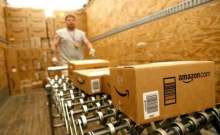PayPal
About 1/5 of online commerce uses PayPal. PayPal started off as a part of eBay but was spun off in 2015. It got a middling Ethiscore.
While that doesn’t look too bad, there is a specific issue on which PayPal’s name is mud, which is its refusal to extend its service to Palestinians in the West Bank and Gaza. This is serious because payment issues in Gaza are acute, and a large pool of Palestinian IT professionals say that the inability to use PayPal is preventing them from gaining employment.
What makes the situation worse is that Israelis living in the illegal settlements can use PayPal, because they have Israeli bank accounts, and PayPal works with Israeli banks. The Palestinians, however, cannot generally open accounts with Israeli banks. PayPal also works with most of the other Arab countries in the region, including war-torn Yemen.
PayPal has mostly refused to engage on the subject, apart from issuing meaningless statements like: “we are in an ongoing dialogue with advocates and key stakeholders on this important issue”. In 2016, 43 Palestinian tech companies and start-ups signed an open letter addressed to PayPal’s CEO Daniel Schulman. They never got a response.
There isn’t a boycott of PayPal called yet, although there have been rumblings about one.




